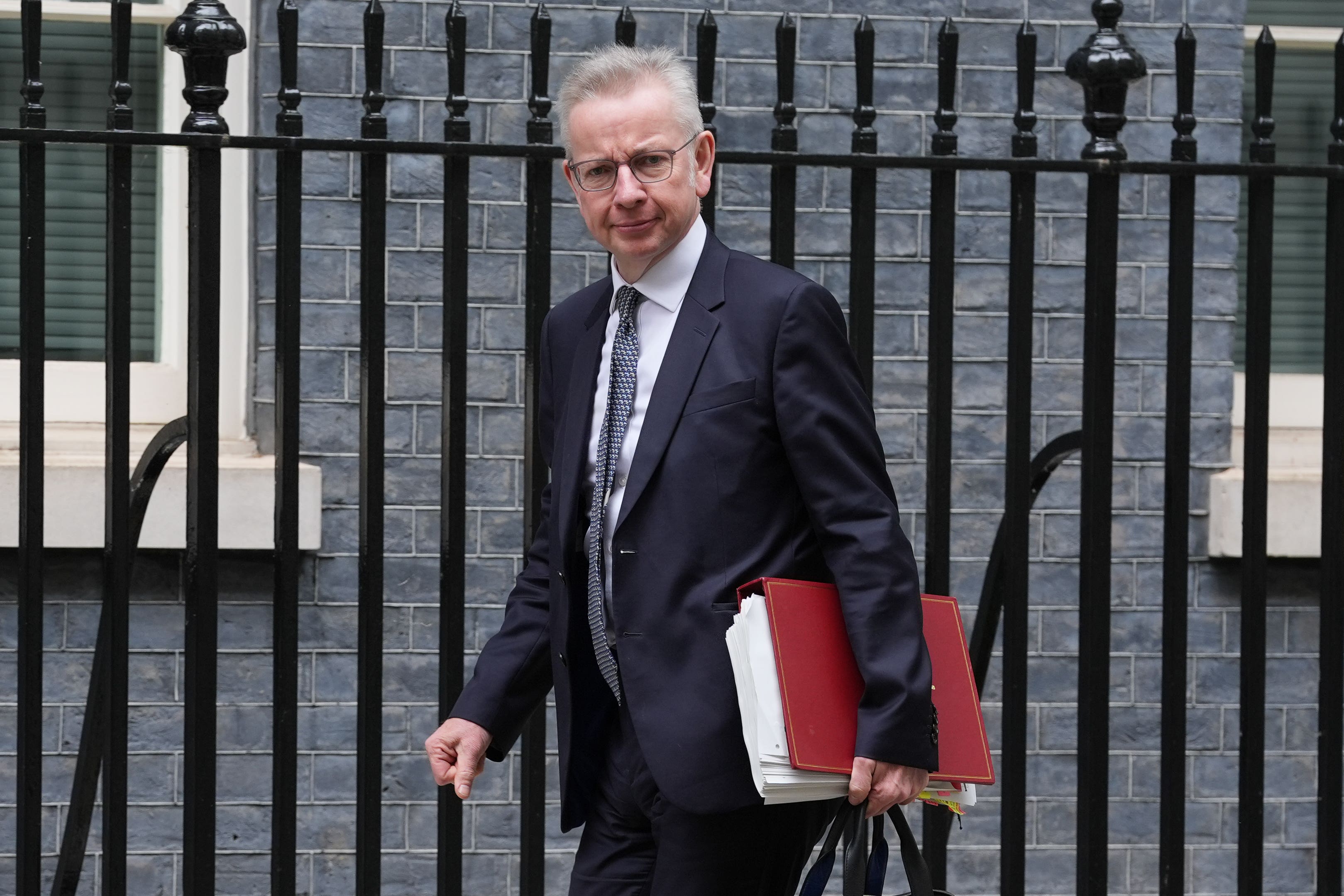‘Other dominoes will fall’ if Israel undermined, says Gove
Michael Gove suggested pro-Palestine marches had enabled antisemitism and threatened the West’s security.

Organisers of pro-Palestine protests should “reflect on what those marches have enabled”, Michael Gove said as he warned that rising antisemitism threatened to cause a “profound breach in the West’s collective defence”.
The Communities Secretary used a speech at a Jewish community centre in North London to accuse protest organisers of failing to deal with antisemitic demonstrators, leaving Jewish citizens feeling intimidated and unsafe.
But he also sought to link rising cases of antisemitism to a wider contest between the West and authoritarian states.
Describing Iran, Russia and China as “sources and spreaders of antisemitic and anti-Israel narratives”, he said authoritarian leaders were attempting to take advantage of “decolonisation narratives” among academics to delegitimise Israel by casting it as a racist, settler state.
He said: “They know that if they undermine Israel, the other dominoes will fall.”
Reports of antisemitic incidents reached a record high last year, according to figures from Jewish security charity the Community Security Trust (CST), with two-thirds coming in the three months after Hamas’s October 7 attack on Israel.
Concerns have also been raised about regular pro-Palestine demonstrations in London and encampments at British universities, with critics saying they provide a platform for antisemitism.
Organisers say the marches have been overwhelmingly peaceful and few arrests have been made.
On Tuesday, Mr Gove acknowledged that many demonstrators were “thoughtful, gentle, compassionate people”, but said they were standing “side-by-side with those who are promoting hate” and had not taken steps to “call out” antisemitism.
He also accused student encampments of displaying “antisemitism repurposed for the Instagram age”, with graffiti invoking the “blood libel” conspiracy theory and posters claiming politicians and the media were controlled by Jews.
Asked how individuals motivated by humanitarian concerns could make their feelings known without contributing to the problem of antisemitism, Mr Gove said there were “many ways” including lobbying MPs and speaking through the media and other platforms.
He added: “My view is that when these marches started, there was a strong feeling from people who were deeply committed to peace.
“But as we have seen these marches progress action has not been taken to deal with the individuals who are peddling hate on these marches.
“That requires collective action, Government action in the last resort.
“But what I would hope would be the case is that those who are participating and organising these marches would reflect on what those marches have enabled and consider a far better way of making their point peacefully in a way that all of us can recognise is motivated from compassion without facilitating hate.”
Mr Gove’s speech came shortly before publication of a report by Lord Walney, the Government’s adviser on political violence, which called for new laws to deal with “extreme” activism.
Lord Walney’s recommendations included requiring organisers of frequent protests to bear some of the costs of policing those protests, and banning organisations that break the law in order to influence public debate.
Civil liberties campaigners have described the report as a “further crackdown” on peaceful protests and attempting to ban protests it disagrees with.